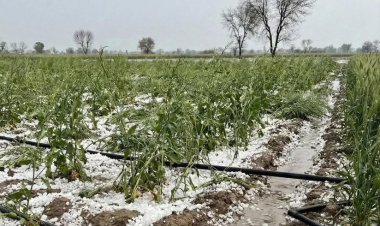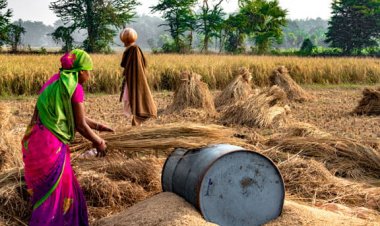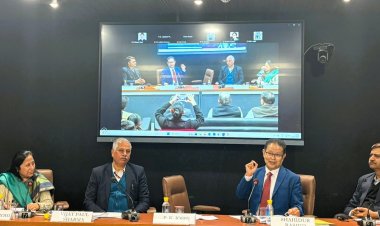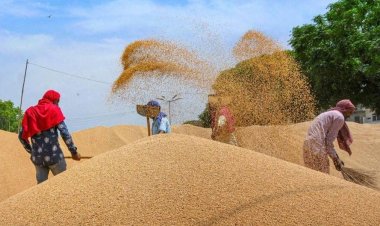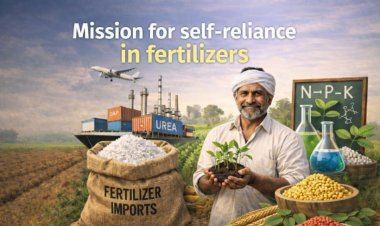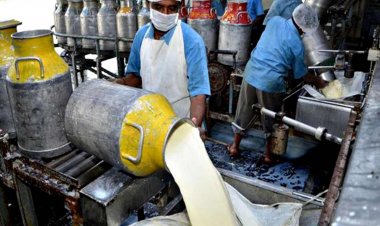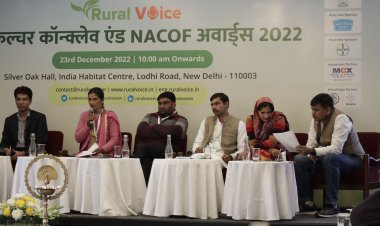Indian Council of Agricultural Research (ICAR) has informed that trials were conducted at 20 locations in selected crops to study the effect of IFFCO nano-urea (liquid) used as foliar spray.
The study indicated that nano-urea can be used as foliar spray for top-dressing instead of conventional urea.
In addition, foliar application of nano urea along with basal application of recommended dose of conventional urea has yield advantage of 3-8% over conventional fertiliser application, ICAR noted.
The information was given by Minister of State for Chemicals and Fertilizers Bhagwanth Khuba in a written reply in Lok Sabha on Aug 4.
Accordingly, Department of Agriculture & Farmers Welfare (DA&FW) has provisionally notified Nano Urea as Nano Nitrogen Fertilisers in Fertiliser Control Order, 1985.
Further, Indian Council of Agricultural Research (ICAR) has informed that IFFCO and CIL have developed nano DAP and have conducted preliminary field trials on selected crops in selected ICAR Institutes/SAU’s.
The report indicated that with the use of nano DAP as seed treatment and foliar application, there is a possibility of saving of granular DAP conventionally applied.
Accordingly, the Government of India has also notified Nano DAP under the Fertiliser Control Order (FCO) – 1985 on the basis of the bio-efficacy trials and toxicology tests and M/s Coromandel International Limited (CIL) and M/s Indian Farmers Fertiliser Cooperative Limited (IFFCO) have been granted permission to manufacture Nano DAP.
Minister said Government of India is not directly involved in setting up of Nano Urea Plants. However, three Nano Urea plants at Kalol, Phulpur and Aonla with capacity of 17 crore bottles have been set up by IFFCO.
Further, IFFCO has started commercial production of DAP from March this year at its Kalol plant and will commission two more plants at Kandla and Paradeep. Moreover, Coromandel International Limited (CIL) has also established state-of-the-art Nano DAP production facility in Andhra Pradesh with manufacturing capacity of 4 crore bottles (1 litre each) per year.
Meanwhile, for reducing the use of chemical fertilisers in agriculture, the Government of India is promoting the balanced and judicious use of fertilisers based on soil test based recommendations in conjunction with organic fertiliser and bio-fertilisers.
Further, under organic schemes of Paramparagat Krishi Vikas Yojana (PKVY), Namami Gange, Bhartiya Prakritik Krishi Padhati (BPKP), Mission Organic Value Chain Development for North- Eastern Region (MOVCDNER), National Project on Organic Farming (NPOF) etc., farmers are provided assistance for use of organic and bio-fertilisers. Further, National Centre for Organic Farming (NCOF) is involved in awareness generation and training activities for promotion of organic farming.
The Cabinet Committee on Economic Affairs (CCEA) in its meeting in June had approved the “PM Programme for Restoration, Awareness Generation, Nourishment, and Amelioration of Mother-Earth (PM-PRANAM)”. The initiative aims to support the mass movement started by States/UTs to save the health of Mother Earth by promoting sustainable and balanced use of fertilisers, adopting alternate fertilisers, promoting organic farming and implementing resource conservation technologies.
Under the said scheme, 50% of the fertiliser subsidy saved by a State/UT in a particular financial year by way of reduction in consumption of chemical fertilisers (Urea, DAP, NPK, MOP) compared to previous 3 years’ average consumption, will be passed on to that State/UT as Grant.
The CCEA meeting also approved the Market Development Assistance (MDA) @ Rs.1,500/MT to promote organic fertilisers, i.e. manure produced at plants under GOBARdhan initiative covering different Biogas/CBG support schemes/programmes of stakeholder Ministries/Departments such as Sustainable Alternative Towards Affordable Transportation (SATAT) scheme of MoPNG, ‘Waste to Energy’ programme of MNRE, Swachh Bharat Mission (Rural) of DDWS, etc at a total outlay of Rs. 1,451.84 crore (FY 2023-24 to 2025-26), which includes a corpus of Rs. 360 crore for research gap funding.
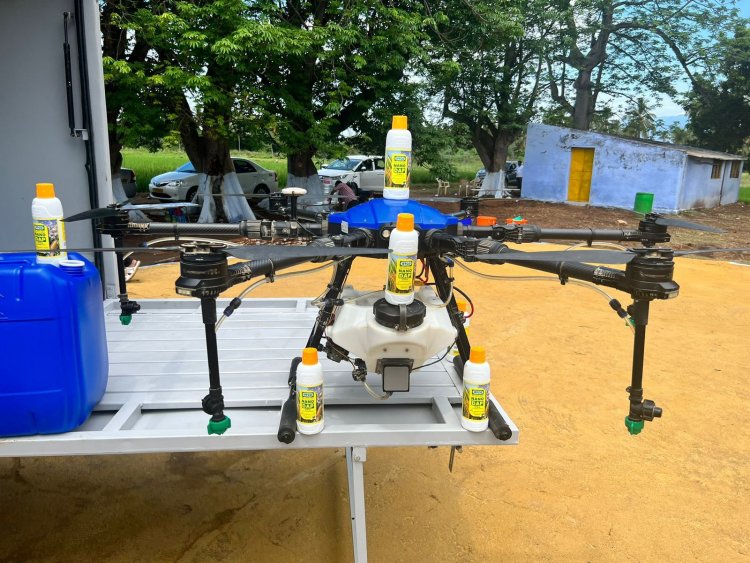



 Join the RuralVoice whatsapp group
Join the RuralVoice whatsapp group

















